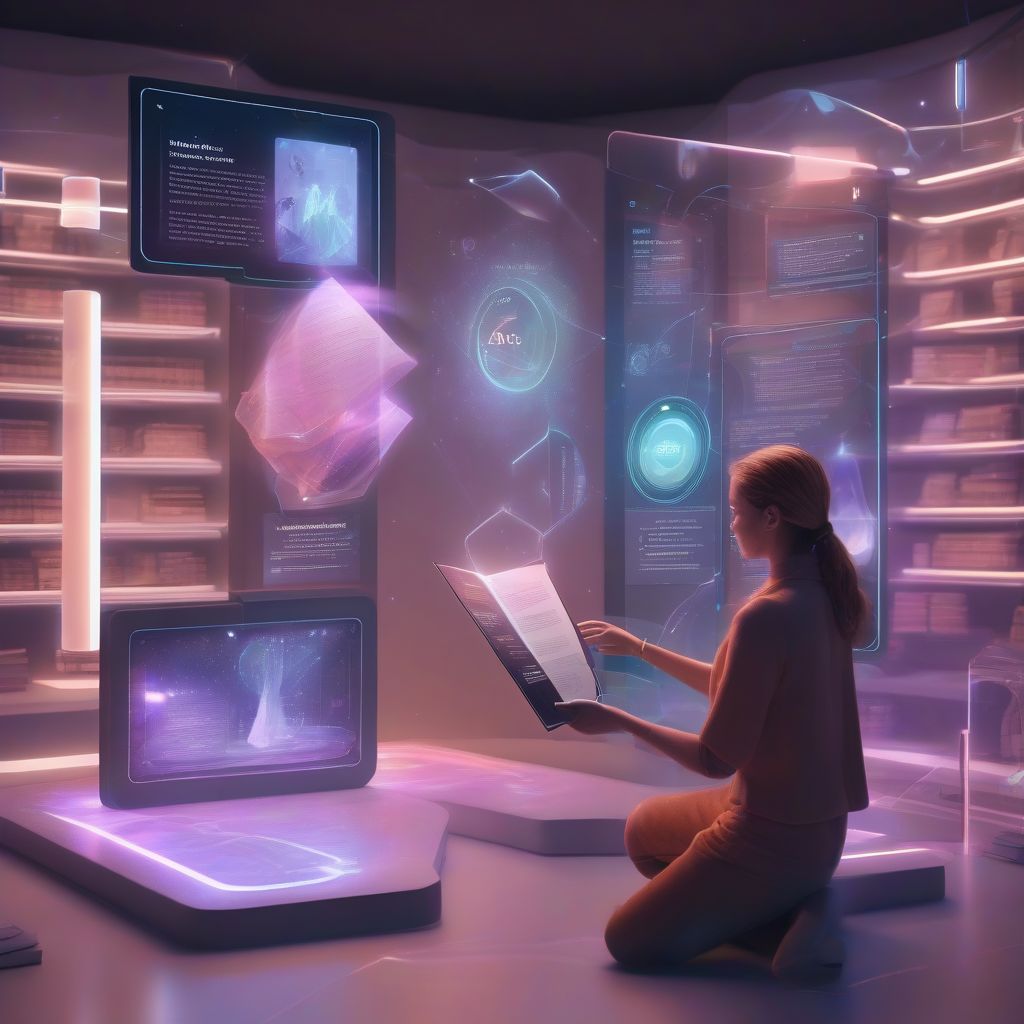Imagine a world where book reviews are more than just star ratings and short summaries. A world where insightful critiques are readily available, personalized to your reading preferences, and delivered through interactive, engaging formats. That’s the future of book reviewing in the digital age, and it’s closer than you think.
The Evolving Landscape of Book Reviews
Traditionally, book reviews were the domain of newspapers and literary magazines, gatekeepers of literary taste. However, the internet has democratized this process, giving everyone a platform to share their thoughts and opinions. Websites like Goodreads and Amazon have become bustling hubs for reader reviews, influencing purchasing decisions and shaping literary trends. This shift has brought both opportunities and challenges.
The Power of the Crowd
The sheer volume of reviews available online offers a wealth of perspectives. Readers can access diverse opinions, discover hidden gems, and connect with others who share their literary tastes. This “wisdom of the crowd” can be invaluable for navigating the vast sea of books available. However, it also raises concerns about the credibility and authenticity of reviews.
Navigating the Maze of Online Reviews
With millions of reviews available, how can readers find trustworthy critiques? This is where the future of book reviewing comes in. Artificial intelligence (AI) and machine learning can help filter and curate reviews, identifying patterns and highlighting insightful critiques. Personalized recommendations based on reading history and preferences will further enhance the reader experience.
 Future of Book Reviewing
Future of Book Reviewing
The Rise of Multimedia Reviews
Text-based reviews are evolving into richer, more engaging formats. Video reviews, podcasts, and interactive discussions are gaining popularity, offering a dynamic and personalized approach to literary criticism. Imagine watching a video review that analyzes a book’s themes through visual storytelling or listening to a podcast discussion that debates its merits.
Beyond the Written Word: Embracing New Formats
The future of book reviewing embraces innovation. Think interactive quizzes that test your comprehension, virtual book clubs where you can discuss your thoughts with fellow readers, and augmented reality experiences that bring books to life. These interactive formats can enhance engagement and foster deeper connections with literature.
The Role of Social Media
Social media platforms like Instagram and TikTok are becoming increasingly influential in the book world. “Bookstagrammers” and “BookTokers” share their passion for reading through visually appealing content, influencing their followers and shaping literary trends. This social aspect of book reviewing fosters a sense of community and encourages engagement.
The Importance of Authenticity and Transparency
As the landscape of online reviews becomes more complex, the need for authenticity and transparency becomes paramount. Readers are becoming savvier at identifying fake or biased reviews. Platforms that prioritize verified purchases and offer clear guidelines for reviewers can build trust and ensure the integrity of the review process.
The Future is Personalized and Interactive
The future of book reviewing is personalized and interactive, catering to individual reading preferences and offering dynamic, engaging formats. AI-powered recommendations, multimedia reviews, and social media engagement will shape how we discover, discuss, and experience literature. This evolution promises to make the world of books more accessible, engaging, and enriching for everyone.
The Impact on Authors and Publishers
This shift in book reviewing also impacts authors and publishers. Real-time feedback from readers can influence marketing strategies and even shape the direction of future works. Publishers can leverage data from online reviews to understand reader preferences and tailor their offerings accordingly.
Conclusion
The future of book reviewing is bright, full of possibilities and opportunities. From AI-powered recommendations to interactive discussions, the digital age is transforming how we engage with literature. By embracing innovation and prioritizing authenticity, we can create a vibrant and enriching literary landscape for readers, authors, and publishers alike. What are your thoughts on the future of book reviewing? Share your predictions and insights in the comments below! Let’s continue the conversation and shape the future of reading together.



